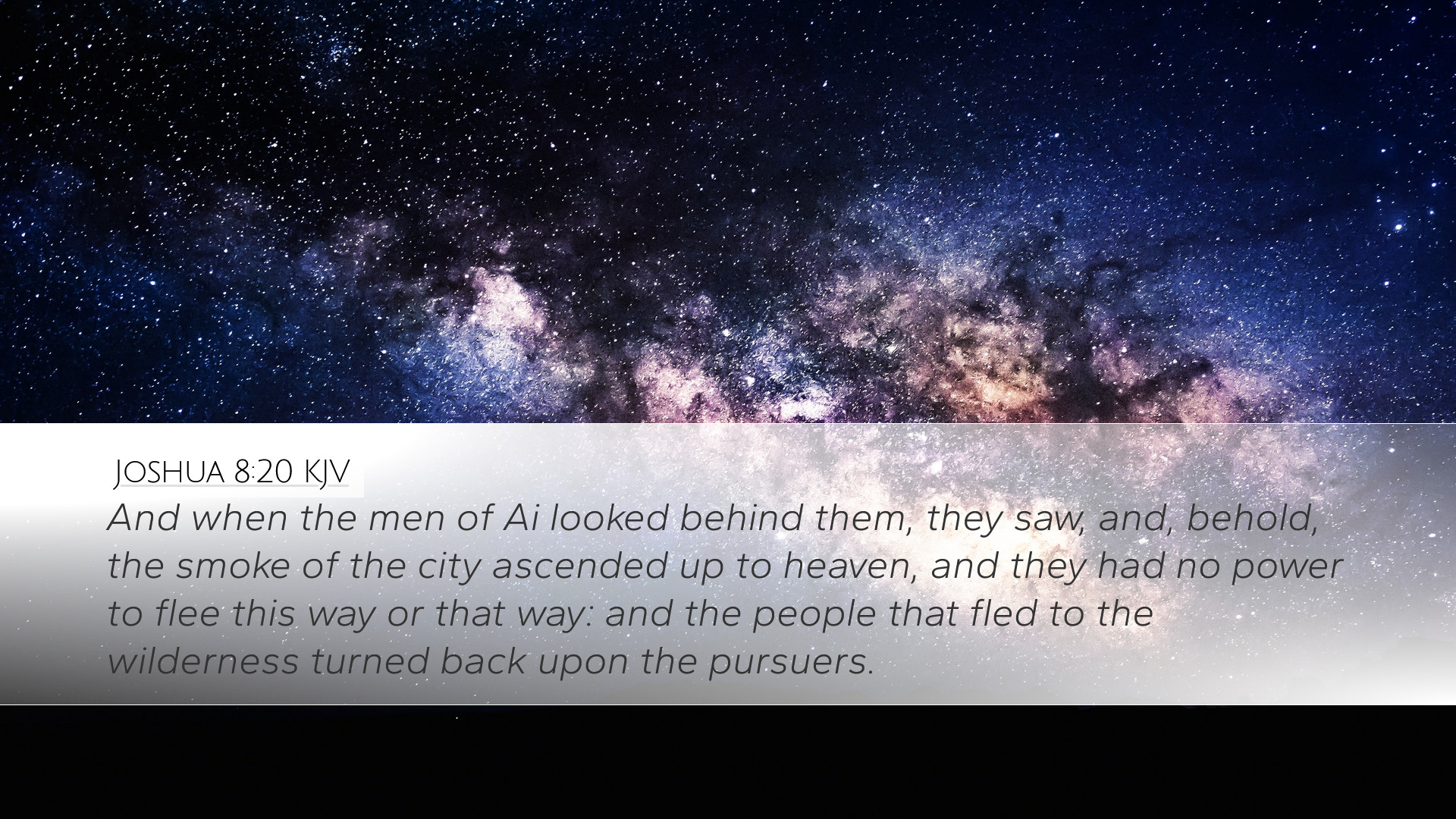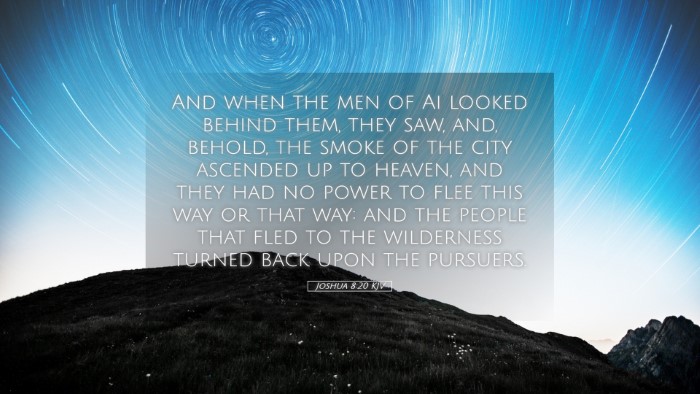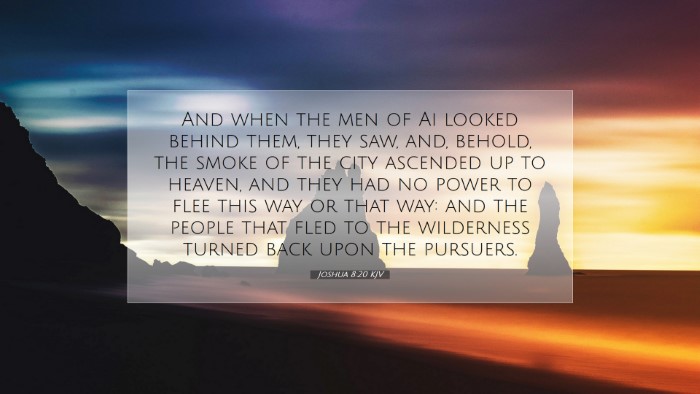Commentary on Joshua 8:20
Verse Reference: Joshua 8:20 - "And when the men of Ai looked back unto the people of Israel, they saw, and, behold, the smoke of the city ascended up to heaven, and they had no power to flee this way or that way: and the people that fled to the wilderness turned back upon the pursuers."
Introduction
This verse captures a pivotal moment in the narrative of Israel's conquest of Canaan. Following their initial defeat at Ai, the Israelites, under Joshua's leadership, strategize to take the city. This passage not only describes a military maneuver but also reflects deeper theological implications regarding divine guidance, obedience, and the consequences of sin.
Contextual Analysis
Before delving into the insights of various commentators, it is critical to understand the wider context surrounding this verse:
- Israel's Initial Defeat: The earlier encounter with Ai resulted in a humiliating defeat for the Israelites due to Achan’s sin, which highlights the importance of holiness and obedience.
- Strategic Deception: Joshua's plan involved luring the men of Ai out of the city through a feigned retreat, showing the tactical acumen of Israel's leadership.
- Divine Intervention: The ascent of smoke signifies God’s intervention and symbolizes judgment on Ai for their defiance against Israel.
Commentary Insights
Matthew Henry
Matthew Henry emphasizes the significance of the smoke that ascended from the city as an emblem of destruction and divine justice. He notes that the smoke was not merely a physical phenomenon but also a visual cue of God fulfilling His promise of victory over the enemies of Israel. Henry reflects on the psychological impact of the sight upon the soldiers of Ai, whose confidence was shattered as they beheld the city they had confidently attacked now engulfed in flames.
Albert Barnes
Albert Barnes further expands on this notion of fear and dismay among the men of Ai. He explains that, realizing the futility of their pursuit and seeing the city consumed, they were struck with terror. He also highlights the strategic implication of the Israelite tactics; the retreat served as a ruse to draw out the enemy, which not only required great courage but also faith in God's plan. Barnes concludes that this moment illustrates the importance of trusting God's strategy over human insight.
Adam Clarke
Adam Clarke, on the other hand, provides a deeper exploration of the emotional and spiritual implications. He points out that the sight of the burning city would have left the men of Ai feeling trapped and hopeless, with nowhere to turn. Clarke emphasizes that this predicament serves as a metaphor for those who oppose God. He asserts that defiance against God ultimately leads to destruction, invoking a theological reflection on divine retribution and justice.
Theological Reflections
As we contemplate the meaning of Joshua 8:20, several theological themes emerge:
- The Nature of Divine Justice: The destruction of Ai illustrates God's righteousness. Sin cannot stand before His holiness, and those who rebel against His command will face dire consequences.
- Obedience and Strategy: The victory at Ai underscores the necessity of aligning with God's instructions. Joshua's strategic approach, combined with divine intervention, reflects the importance of seeking God’s will in every endeavor.
- Human Limitation and Divine Sovereignty: The fear experienced by the men of Ai serves to remind believers of the limitations of human strength and the supremacy of God's power in orchestrating events for His purposes.
Practical Applications
The insights gained from this verse have lasting implications for pastors, students, theologians, and Bible scholars:
- Faith in Action: Believers should actively seek and trust God's guidance, especially in moments of decision-making and strategy.
- The Importance of Repentance: Recognizing that sin leads to defeat serves as a reminder of the need for repentance and accountability within the community of faith.
- A Call to Vigilance: The church must be vigilant against complacency, ensuring that past victories do not lead to pride and negligence in obeying God’s commandments.
Conclusion
Joshua 8:20 offers rich insights into the nature of divine guidance and judgment. It serves as a reminder that God’s plans are far greater than human strategies. Understanding the multifaceted implications of this event can deepen the faith and practice of believers, encouraging them to seek God's involvement in their lives and ministries.


